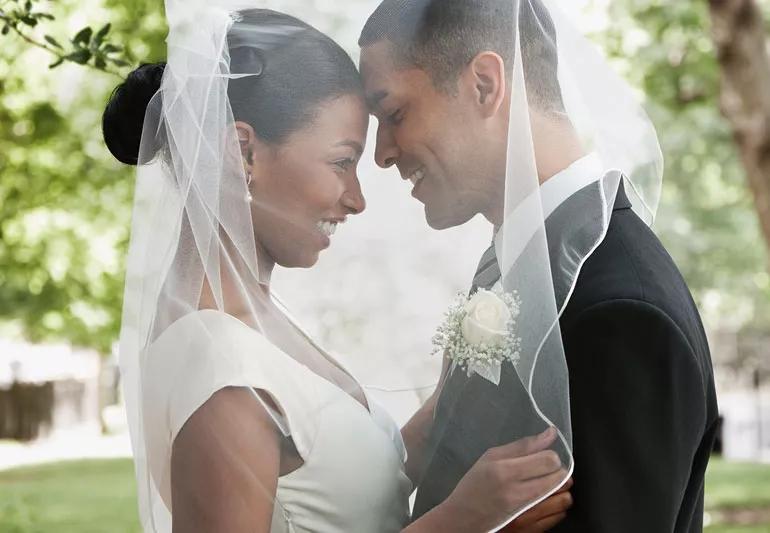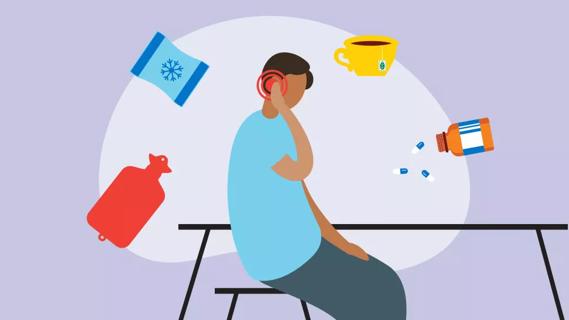Advertisement
Our expert weighs in on how to say ‘I do’ safely

If you’re planning to tie the knot this summer, it may be difficult to know how to plan your event during the ever-changing mandates and guidelines surrounding the COVID-19 pandemic. To mask or not to mask? Are larger gatherings allowed in your region or should you keep your invitation list low? The same is true if you’re planning a bridal or baby shower; where do you begin?
Advertisement
Cleveland Clinic is a non-profit academic medical center. Advertising on our site helps support our mission. We do not endorse non-Cleveland Clinic products or services. Policy
Infectious disease specialist Kristin Englund, MD, weighs in about the biggest things to consider as you plan for or plan to attend a wedding or other party this summer.
The pandemic has changed many things about the world we once knew. But we can celebrate things we couldn’t really freely celebrate last season now that many of the U.S. population is now fully vaccinated. To date, the Centers for Disease Control (CDC) reports 42.1% of those ages 12 and older of the total population of the U.S. is fully vaccinated.
Dr. Englund says if you haven’t been vaccinated yet, it’s something to strongly consider doing.
“One of the most important ways to keep yourself protected when you’re going to or hosting an event like a wedding or other celebration is to get yourself vaccinated,” she says. “Make sure you’ve afforded yourself the best protection so you can have the most fun when you’re helping your family and loved ones celebrate.”
Chances are good, however, that a fair number of the people who will attend your wedding and reception still haven’t received their vaccination against COVID-19 for any number of reasons. So how can you provide a safe environment for all of your guests — vaccinated and unvaccinated — while celebrating your love?
Advertisement
Dr. Englund said it’s important to consider having your event at an outdoor venue.
“We know that if you’re having a party outdoors, especially for a small number of people, that’s going to be the best way to try to keep those who are unvaccinated safe.”
The CDC recently updated its guidelines regarding masking up in public settings, and Dr. Englund says according to the new guidelines, if you’ve been vaccinated it’s OK to ditch the mask. Be mindful to note local and state mandates, as those rules still apply. “In Ohio, the mask mandate has now been lifted for those who are vaccinated.”
She says if your wedding is indoors, and if you’re not vaccinated, you should wear a mask. “An indoor event means those who are unvaccinated need to wear masks indoors.”
If you’re planning to marry your sweetheart this season, Dr. Englund has some helpful tips to make it a fun — and safe — event for everyone:
You’re vaccinated and you’re invited to witness your favorite two people tie the knot. Or maybe you’re in the wedding party (even more exciting!). If you plan to attend a wedding but are unsure of the details regarding the type of venue the ceremony and reception will be in, Dr. Englund recommends asking the bride and groom ahead of time.
“Questions like, ‘is the ceremony going to be indoors or outdoors?’ and ‘Are people expected to be vaccinated before the event?’ are important questions to ask to make sure you know what kind of environment you’re going to be stepping into,” she says.
Dr. Englund says if you’ve not been able to get vaccinated, and you’re someone who’s at risk for a severe infection from COVID-19, you might want to sit this one out. But if you do choose to attend, it’s best to mask up. “It’s important to keep yourself safe so you can attend future celebrations,” she says.
Dr. Englund says it’s also important to know the status of COVID-19 statistics in your community or the community of the party you’ll be attending. “If there’s a lot of COVID-19 around, this is not a good time for people to be gathering, especially indoors,” she says.
There are many reasons to get vaccinated, and the upcoming nuptials of your favorite people might be one key reason to consider vaccination. While the numbers of COVID-19 cases continue to recede, we’re not out of the woods just yet.
Advertisement
“If you’re vaccinated, you can get closer to those around you, you’re able to not wear a mask, especially in an outdoor venue in a small gathering. So there’s a whole lot of benefits to being able to celebrate this wedding season by getting vaccinated.”
The key thing, Dr. Englund says, is to get vaccinated and know the vaccination status of the people you’ve invited to your event. And if you’re the bride and groom, make sure you’re setting up your wedding and reception so that it’s safest for everyone. With kids ages 12 to 15 now able to get vaccinated, younger siblings can safely participate in the festivities too.
“I think everyone is excited to be able to celebrate some of the things we weren’t able to celebrate last year, whether they are weddings, bridal or baby showers, anything to celebrate. But that doesn’t mean that we don’t do it safely,” Dr. Englund says.
Advertisement
Learn more about our editorial process.
Advertisement

Infection and inflammation can cause you to lose your voice and have other voice changes until you’re fully healed

A COVID-19 infection can bring on depression or anxiety months after physical symptoms go away

Ground yourself in evidence, name your thoughts out loud and meet yourself in the middle to help defuse worst-case scenarios

Start by naming your emotions, centering your physical symptoms and identifying how your past impacts your present

Just like the flu, COVID-19 continues to evolve every year with new and smarter variants

Among its other effects, discriminating against people with disabilities hurts their health and well-being

‘Mind your manners’ by watching your language, challenging your assumptions and apologizing when you fall short

The latest omicron subvariants carry specific mutations that may allow the SARS-CoV-2 virus to be better at evading immune protection

Not all ear infections need antibiotics — cold and warm compresses and changing up your sleep position can help

A glass of lemon water in the morning can help with digestion and boost vitamin C levels, and may even help get you into a better routine